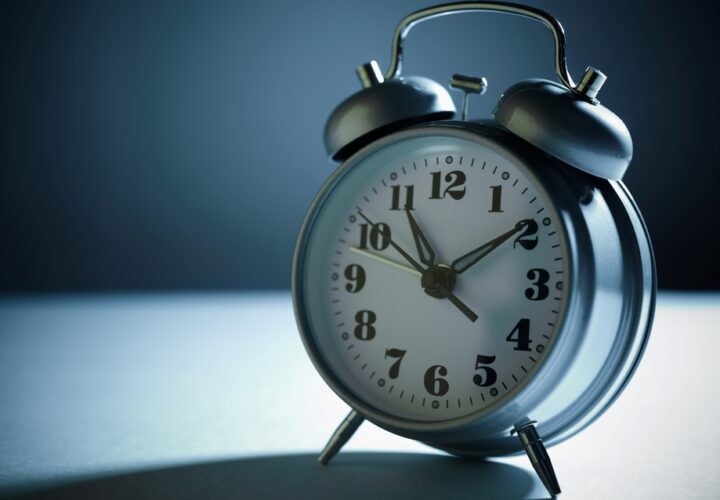Could frequent, long, daytime naps be a red flag for Alzheimer's disease?
Siesta. Power nap. Forty winks. Call them what you will: Naps have been found to benefit mood, alertness, energy levels, cognitive performance, and, in cultures where daytime naps are custom, even healthier aging at large. Despite the perks, only about a third of U.S. adults nap regularly. A new study begs an unexpected question: What portion of daytime nappers are boosting their brain health, versus bearing a red flag for cognitive health problems?
Healthy sleep is good for the brain. But recent
study of older adults has found that lengthy
naps in the middle of the day might be a red
flag for Alzheimer’s disease and
other forms of dementia.
A research team at Brigham and Women’s Hospital found a link between excessive daytime napping and cognitive aging: excessive daytime napping predicted an increased future risk of Alzheimer’s, and a diagnosis of Alzheimer’s sped up the increase in daytime napping during aging. The 2022 findings were published in Alzheimer’s & Dementia: The Journal of the Alzheimer’s Association.
The Link Between Sleep and Brain Health
Sleep has been an increasing focus of study when it comes to learning what causes dementia, how to predict it and how to diagnose it: Deep sleep — when body temperature drops, dreams fade, and brain activity levels out into slow, rhythmic electrical waves — has been linked to the clearing of harmful brain toxins that may cause Alzheimer’s and related dementias.
Other previous studies has explored the average amount of sleep for people with cognitive health problems, the quality of sleep, the breathing patterns in sleep, the impact of “all-nighters” on the brain, the impact of sleep apea and snoring, napping, daytime drowsiness, sleep medications, and many other facets of sleep as they pertain to risk, symptoms or biomarkers of dementia.
Scientists at Massachusetts General Hospital and Beth Israel Deaconess Medical Center have even developed a dementia test that checks for the disease by assessing sleep patterns.
Now, Peng Li of the Medical Biodynamics Program in the Brigham’s Division of Sleep and Circadian Disorders said research needs to broaden its focus beyond its disproportionate focus on nighttime sleep patterns.
“Daytime sleep behaviors of older adults are oftentimes ignored, and a consensus for daytime napping in clinical practice and health care is still lacking,” Li said in a press release.
“Our results not only suggest that excessive daytime napping may signal an elevated risk of Alzheimer’s dementia,” Li added, “but they also show that faster yearly increase in daytime napping may be a sign of deteriorating or unfavored clinical progression of the disease.”
“Our results not only suggest that excessive
daytime napping may signal an elevated risk
of Alzheimer’s dementia, but they also
show that faster yearly increase in
daytime napping may be a sign of
deteriorating or unfavored clinical
progression of the disease.”
Li said the study’s findings also highlight the need for closer attention to 24-hour sleep patterns — not only nighttime sleep but also daytime sleep — when it comes to monitoring health in older adults.
People Who Napped More Had Higher Alzheimer’s Risk
The current study tested two hypotheses: (1) Participants nap longer and/or more frequently with aging, and these changes are even more extreme as Alzheimer’s progresses; and (2) participants who take long naps during the day are at an increased risk of developing Alzheimer’s.
To test these theories, researchers enlisted more than 1,000 participants with an average age of 81. Participants wore a watch-like device on their non-dominant wrist for two weeks. To see how long and how often they slept, the team used a previously validated algorithm that assessed wrist activity. This process helped them map out participants sleep patterns, naps included.
The findings indicated that both nap duration and nap frequency correlated with age.
They also saw a bi-directional, longitudinal relationship between Alzheimer’s and sleeping in the daytime. Accounting for known risk factors for dementia, they saw that longer and more frequent naps during the day were a red flag for Alzheimer’s in both men and women who were otherwise cognitively healthy.
The association didn’t stop there: Naps became longer and more frequent in people with Alzheimer’s as disease progressed — especially after the disease’s symptoms had appeared.
Ultimately, the study’s authors call this bidirectional link between daytime napping and cognition a “vicious cycle.”
“The vicious cycle we observed between daytime sleep and Alzheimer’s disease offers a basis for better understanding the role of sleep in the development and progression of Alzheimer’s disease in older adults,” said Li.
Naps became longer and more frequent in people
with Alzheimer’s as disease progressed — especially
after the disease’s symptoms had appeared.
The study had some limitations, including that because participants were all older, findings may not necessarily translate to younger people.
The findings don’t indicate that naps are necessarily detrimental to brain health, and again, copious past research has found that healthy sleep is good for the brain. However, in future studies, the team wants to explore whether the correlation would hold true if napping during the day was decreased. In other words, they want to look at whether napping less during the day could have a positive affect on brain health, or even lower the risk of cognitive decline.
Co-senior author Kun Hu, of the Medical Biodynamics Program in the Brigham’s Division of Sleep and Circadian Disorders, said that regardless, the team hopes these findings will bring new attention and energy to Alzheimer’s research around sleep patterns.
“Our hope is to draw more attention to daytime sleep patterns and the importance of patients noting if their sleep schedule is changing over time,” Hu said. “Sleep changes are critical in shaping the internal changes in the brain related to the circadian clocks, cognitive decline, and the risk of dementia.”




